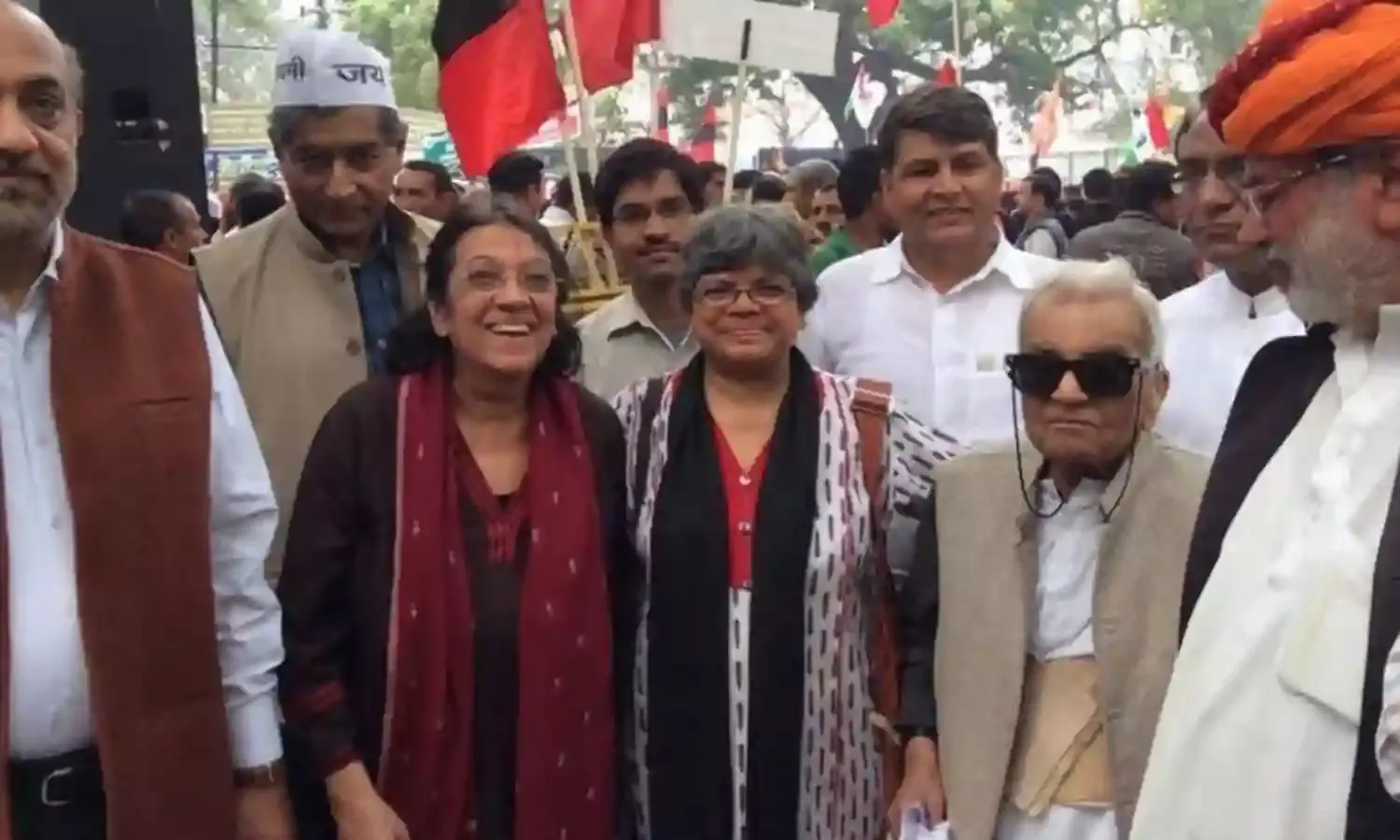Justice Sachar, His Report, and Muslims
'Our finest has gone' (1923'2018)

On April 20 fell the first death anniversary of Justice Rajinder Sachar, a socialist visionary, a judge par excellence, a true secular democrat, an unrelenting champion of human rights and civil liberties, and a wonderful person with complete faith in human goodness.
I personally feel a great sense of loss without him, particularly in my political activities. Justice Sachar's activities were guided by the perspective of socialist ideology and the socialist movement of India. He was first and foremost a staunch Lohian socialist, so very involved in the affairs of the Socialist Party (India) which he and senior leaders like Surendra Mohan, Bhai Vaidya, Pannalal Surana, Keshav Jadhav formed in 2011, along with several young socialists.
He had this hope and belief that the old glory of the Socialist Party and the original spirit of the movement–ideology would thrive once again in the realm of Indian politics. Of course, in order to replace the present corporate capitalist order.
I often wondered about his optimism and would ask him how, if people around him did not respond adequately to his appeals, he could hope that the public in general would support his party and candidates. To that he would only give an innocent smile, without the slightest sign of pessimism. His smile always kept us in a positive frame of mind and that is what we miss badly without him around us.
In the later period of his life, Justice Sachar was mainly known for the Sachar Committee Report. The committee was constituted in 2005 by Prime Minister Manmohan Singh with the aim of preparing a report about the social, economic and educational status of Indian Muslims. The 403-page report was tabled in Parliament on November 30, 2006. Its findings and recommendations immediately became a topic of sharp debate in political, social and intellectual circles.
The report was considered to be a mirror showing a detailed picture of Muslims throughout the country. It received praise from a large part of the intelligentsia as well as political parties. But after it was published, many adverse reactions were also made. An assassination plan was reported. When a report in the Indian Express disclosed this, I wrote a letter to the Manmohan Singh government requesting it to provide protection to Justice Sachar. But the government did not pay heed to my request, although it wanted to give him a Padma Bhushan for his report, which Justice Sachar humbly refused.
The Sachar Committee Report brought renewed attention to the ever growing economic suppression and social insecurity and alienation of Indian Muslims since Independence. It found on the basis of official data that Muslims, estimated to number 138 million in 2001, were underrepresented in the civil services, police, military, and in political parties and the legislatures. Muslims were more likely to be poor, illiterate, unhealthy and to be targeted by law enforcement in comparison with Hindus and other Indians.
Thus the myth of ‘Muslim appeasement’ stood thoroughly exposed.
Then began a race among the political parties to promise in their manifestoes that they would implement the recommendations of the Sachar Committee Report. The only exception was the Bharatiya Janata Party, which in fact opposed the report vehemently. But the secular parties kept repeating their promises in their manifestos and rhetoric. When one reviews the central and state governments’ progress in implementing the report’s recommendations, however, the picture is quite dismal.
The report states that the religious minorities, especially Muslims, have been the ignored factor in all central governments since Independence. Among its various recommendations, the Prime Minister’s High Level Committee Report recommended the establishment of an Equal Opportunity Commission as an instrument to combat discrimination against minorities in the private sector, like in housing and employment. It is an important point since at present the courts cannot interfere in cases of discrimination in the private sector. This recommendation has been inexcusably sidelined and remains in cold storage, even though EOCs can be set up by state governments without permission from the centre.
Another very urgent recommendation of the report dealt with the unfairness in delimiting electoral constituencies, which has resulted in a much lower proportion of Muslims in the legislatures than that to which they are entitled, given their share of the population. This anomaly arises from the way constituencies and wards have been demarcated in the legislatures at various levels.
In Uttar Pradesh, for instance, there is abundant potential for a substantial number of Muslims to win seats. As per the report, to address this it is essential to delimit constituencies in a fair manner. But on the contrary, constituencies with a substantial number of Muslims have been reserved for Scheduled Caste candidates, and constituencies with a substantial number of SC voters remain unreserved. This is unfair to both Muslims and Dalits, and cynically pits them against each other. The Committee had hoped that this would receive the immediate attention of the government, as the Delimitation Commission was at the time engaged in this exercise. But the committee’s recommendation stood unimplemented and ignored during delimitation.
Now, as far as Indian Muslims and many other minorities are concerned, politics has taken a different turn. The advent of Narendra Modi on the national scene has led to a situation where no political party mentions the recommendations of the Sachar Committee in its manifesto for the ongoing general election.
Justice Sachar wanted to live on till this election. But unfortunately his health did not permit him to fulfil his desire. If he had been alive today, he would have been very upset about these developments.
Prem Singh teaches Hindi at Delhi University and is president of the Socialist Party (India).



